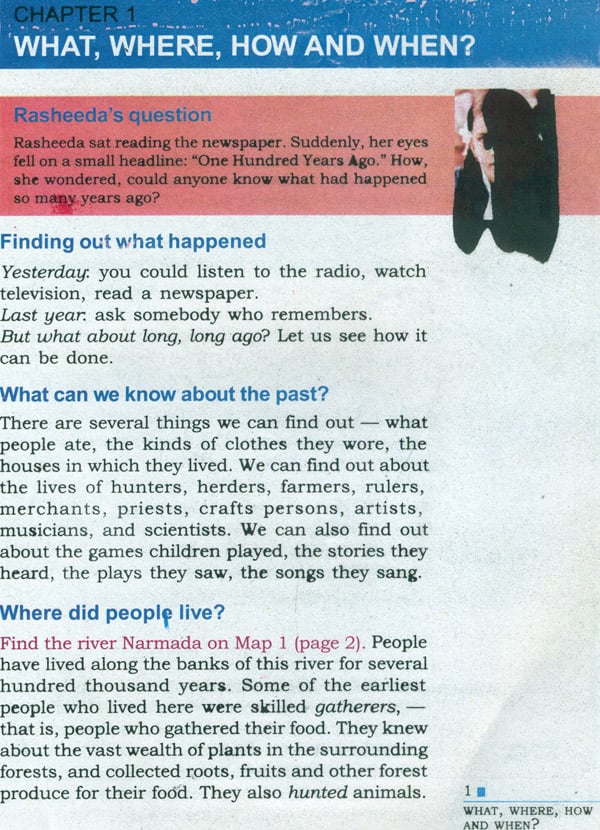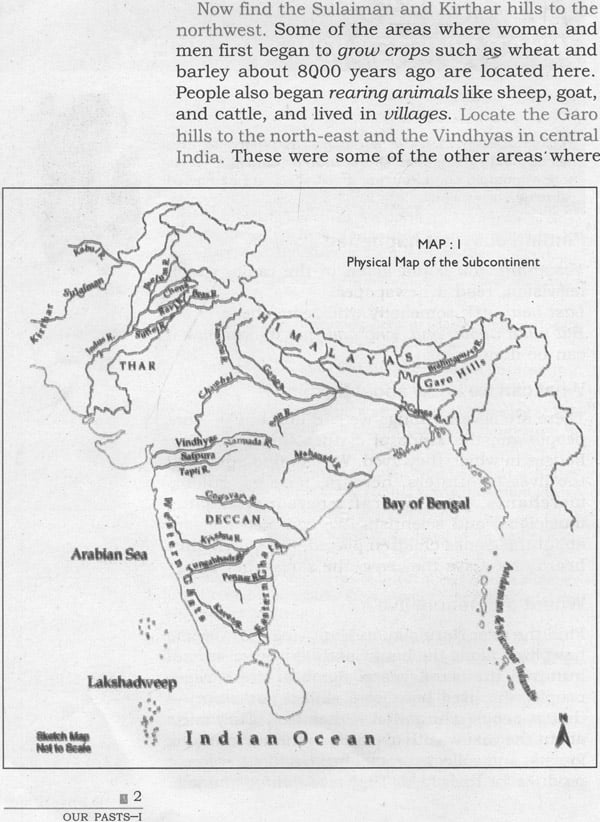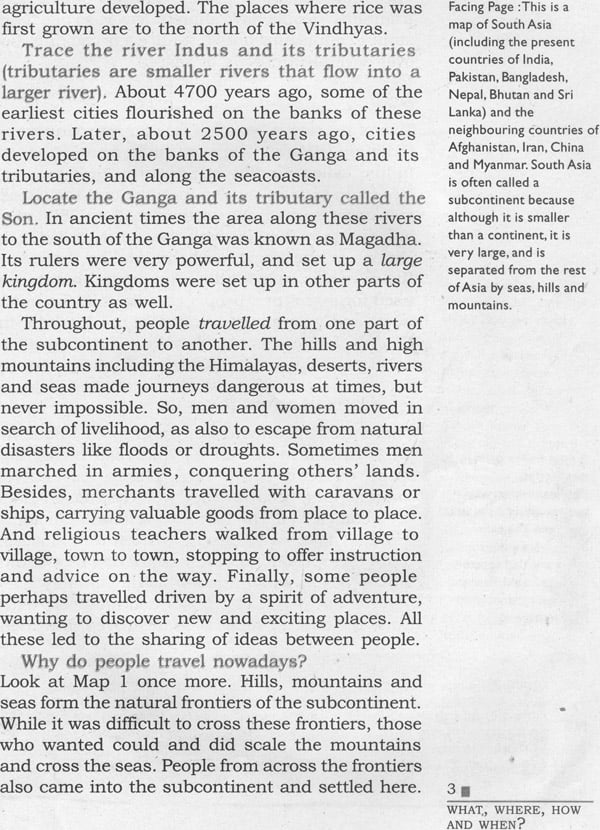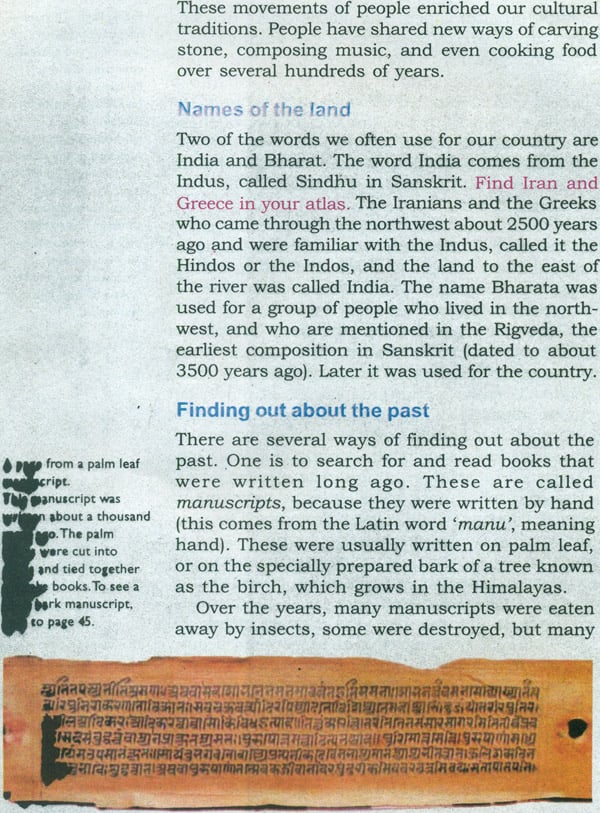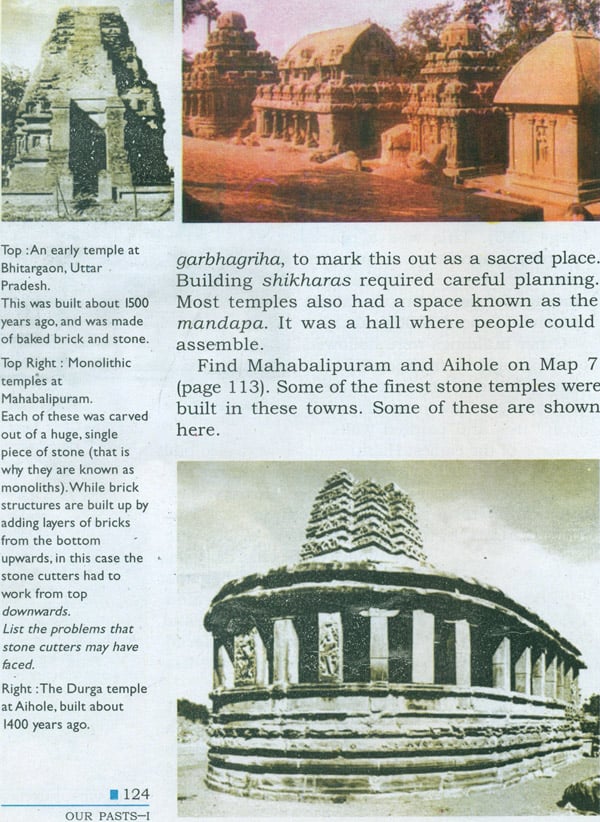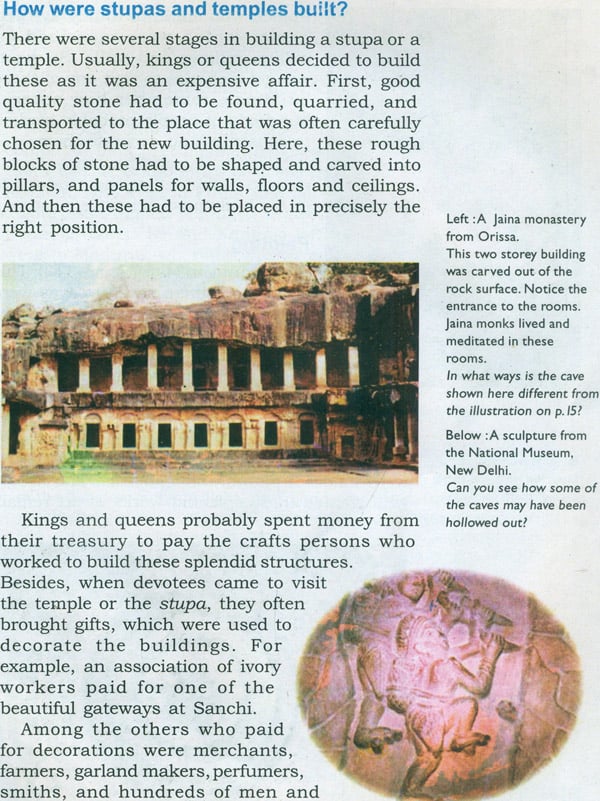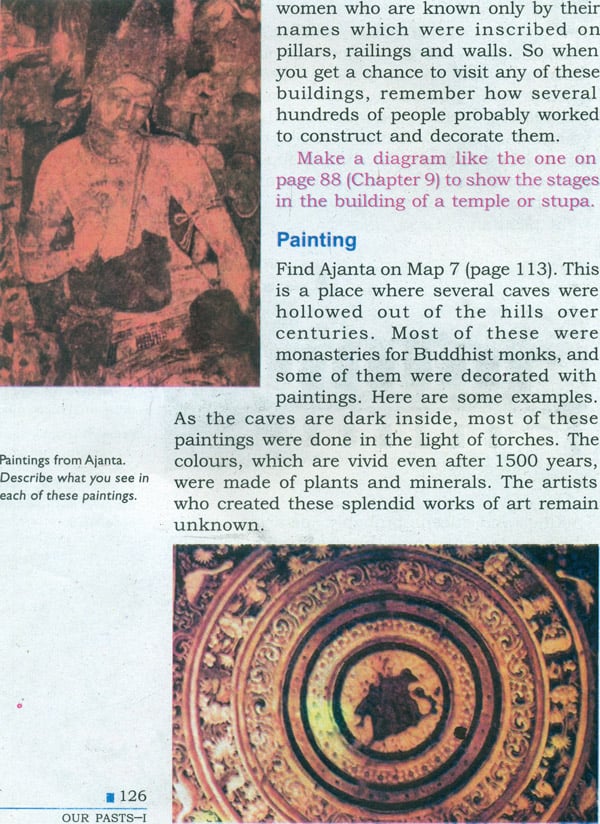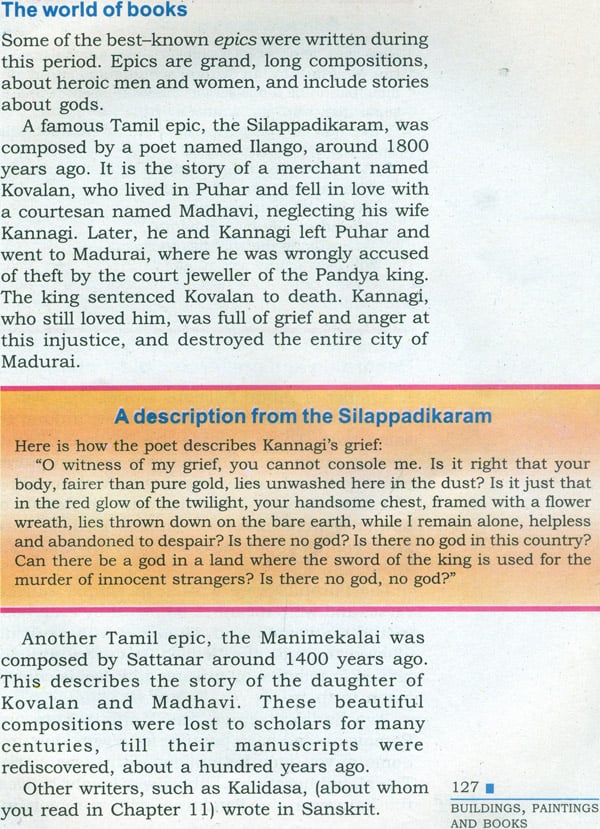
Our Pasts - I (Text Book in History for Class VI)
Book Specification
| Item Code: | NAN377 |
| Publisher: | National Council of Educational Research and Training |
| Language: | English |
| Edition: | 2019 |
| ISBN: | 9788174504937 |
| Pages: | 148 (Throughout Color Illustrations) |
| Cover: | Paperback |
| Other Details | 10.5 inch X 8.0 inch |
| Weight | 320 gm |
Book Description
The National Curriculum Framework (NCF), 2005 recommends that children's life at school must be linked to their life outside the school. This principle marks a departure from the legacy of bookish learning which continues to shape our system and causes a gap between the school, home and community. The syllabi and textbooks developed on the basis of NCF signify an attempt to implement this basic idea. They also attempt to discourage rote learning and the maintenance of sharp boundaries between different subject areas. We hope these measures will take us significantly further in the direction of a child-centred system of education outlined in the National Policy on Education (1986).
The success of this effort depends on the steps that school principals and teachers will take to encourage children to-reflect on their own learning and to pursue imaginative activities and questions. We must recognise that, given space, time and freedom, children generate new knowledge by engaging with the information passed on to them by adults. Treating the prescribed textbook as the sole basis of examination is one of the key reasons why other resources and sites of learning are ignored. Inculcating creativity and initiative is possible if we perceive and treat children as participants in learning, not as receivers of a fixed body of knowledge.
These aims imply considerable change in school routines and mode of functioning. Flexibility in the daily time-table is as necessary as rigour in implementing the annual calendar so that the required number of teaching days are actually devoted to teaching. The methods used for teaching and evaluation will also determine how effective this textbook proves to be for making children's life at school a happy experience, rather than a source of stress or boredom. Syllabus designers have tried to address the problem of curricular burden by restructuring and reorienting knowledge at different stages with greater consideration for child psychology and the time available for teaching. The textbook attempts to enhance this endeavour by giving higher priority and space to opportunities for contemplation and wondering, discussion in small groups, and activities requiring hands-on experience.
The National Council of Educational Research and Training (NCERT) appreciates the hard work done by the textbook development committee responsible for this book. We wish to thank the Chairperson of the advisory group in Social Science, Professor. Hari Vasudevanand the Chief Advisor for this book, Professor Neeladri Bhattacharya for guiding the work of this committee. Several teachers contributed to the development of this textbook; we are grateful to their principals for making this possible. We are indebted to the institutions and organisations, which have generously permitted, us to draw upon their resources, material and personnel. We are especially grateful to the members of the National Monitoring Committee, appointed by the Department of Secondary and Higher Education, Ministry of Human Resource Development under the Chairpersonship of Professor Mrinal Miri and Professor G. P. Deshpande, for their valuable time and contribution. As an organisation committed to systemic reform and continuous improvement in the quality of its products, NCERT welcomes comments and suggestions which will enable us to undertake further revision and refinement.
| Foreword | iii | |
| Why Study History? | vii | |
| 1 | What, Where, How And When? | 1 |
| 2 | On The Trail of The Earliest People | 11 |
| 3 | From Gathering To Growing Food | 22 |
| 4 | In The Earliest Cities | 32 |
| 5 | What Books And Burials Tell Us | 43 |
| 6 | Kingdoms, Kings And An Early Republic | 54 |
| 7 | New Questions And Ideas | 65 |
| 8 | Ashoka, The Emperor Who Gave Up War | 75 |
| 9 | Vital Villages, Thriving Towns | 87 |
| 10 | Traders, King And Pilgrims | 99 |
| 11 | New Empires And Kingdoms | 111 |
| 12 | Buildings, Paintings And Books | 122 |
